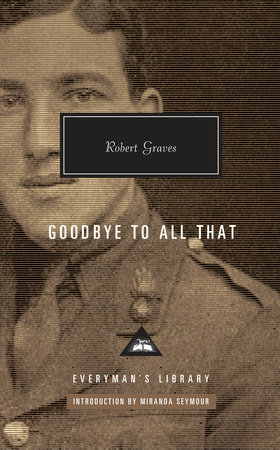from Goodbye to All That
'After a meal of bread, bacon, rum and bitter stewed tea sickly with sugar, we went up through the broken trees to the east of the village and up a long trench to battalion headquarters. The trench was cut through red clay. I had a torch with me which I kept flashed on the ground. Hundreds of field mice and frogs were in the trench. They had fallen in and had no way out. The light dazzled them and we could not help treading on them. So I put the torch back in my pocket. We had no picture of what the trenches would be like, and were not far off the state of mind in which one young soldier joined us a week or two later. He called out very excitedly to old Burford who was cooking up a bit of stew in a dixie, apart from the others: 'Hi, mate, where's the battle? I want to do my bit.'
The trench was wet and slippery. The guide was giving hoarse directions all the time. 'Hole right.' 'Wire high.' 'Wire low.' 'Deep place here, sir.' 'Wire low.' I had never been told about the field telephone wires. They were fastened by staples to the side of the trench, and when it rained the staples were always falling out and the wire falling down and tripping people up. If it sagged too much one stretched it across the top of the trench to the other side to correct the sag, and then it would catch one's head. The holes were the sump-pits used for draining the trenches. We were now under rifle-fire. I always found rifle-fire more trying than shell-fire. The gunner was usually, I knew, firing not at people but at map-references - cross-roads, likely artillery positions, houses that suggested billets for troops, and so on. Even when an observation officer in an aeroplane or captive balloon or on a church spire was directing the gun-fire it seemed unaimed, somehow. But a rifle bullet even when fired blindly always had the effect of seeming aimed. And we could hear a shell coming and take some sort of cover, but the rifle bullet gave no warning. So though we learned not to duck to a rifle bullet, because once it was heard it must have missed, it gave us a worse feeling of danger. Rifle bullets in the open went hissing into the grass without much noise, but when we were in a trench the bullets, going over the hollow, made a tremendous crack. Bullets often struck the barbed wire in front of the trenches, which turned them and sent them spinning ;n a head-over- heels motion - ping! rockety-ockety-ockety-ockety into the woods behind. '
